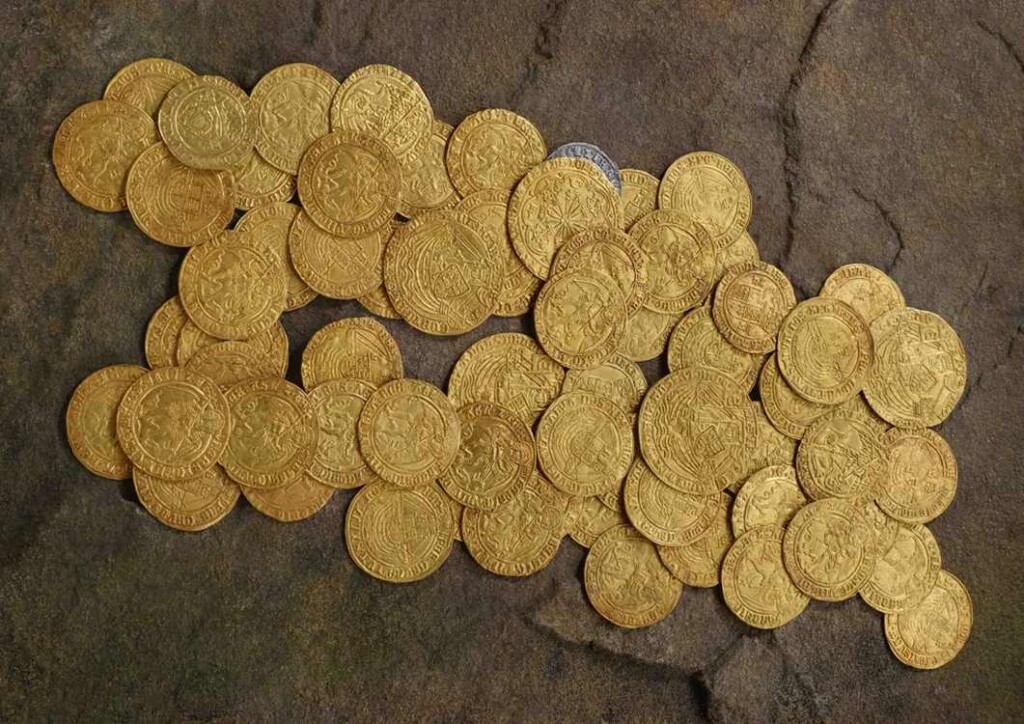Family Finds Trove Of Rare Tudor Coins Buried In Backyard–Now They Can Sell At Auction

English news headlines are no stranger to buried treasure. Thousands of silver coins have been found by citizens up and down the country over the last 50 years.
Gold ones, however, are substantially rarer, and that makes this haul of 69 gold coins from the Tudor dynasties of 15th and 16th-century England one of the most incredible in decades.
Found embedded in a patch of clay under a garden during fence maintenance at a family’s home in the south England coastal area of Hampshire, the haul was kept secret from the public while its discovery was reported to the British Museum’s Portable Antiquities Scheme.
With 63 coins found in 2020, archaeologists eventually visited the property and turned up another 6 nearby a year later.
Now, on November 5th, the treasure, called the New Forest Hoard, will be sold by the Swiss coin auctioneer and appraiser Numismatica Ars Classica. Smithsonian Magazine reported the current valuation to be over $300,000.
The hoard includes coins from the reigns of Henry VI, Edward IV, Henry VII, and Henry VIII, and examples also carried the names of two of the latter’s wives and the initials of a third. According to the auction catalogue, the collection is the “only complete and fully documented gold coin hoard from the early Tudor period ever to have been sold at auction.”
“Four kings, two queens and one cardinal are named on coins in the hoard,” numismatist and business owner David Guest told Fox News Digital. “I am very confident that the total price realized will be significantly more than the pre-sale estimate.”
A HOARD OF HOARDS:
- Father-Son Were Trying to Find Roman Road But Found a Shovelful of 16th C. Silver Coins Instead
- Hoard of 1,000-yo Coins Unearthed in Farmer’s Field Nets Millions for Metal Detecting Friends–and Treasure for UK
- This Shipwreck Is ‘Treasure Fleet’ from 1715 with $1 Million in Gold and Silver Coins Recovered
“While we will never know why and by whom the hoard was buried, it was almost certainly concealed during the tumultuous first phase of the English Reformation, when Henry VIII was dissolving England’s ancient monasteries and appropriating much of the wealth of the Catholic Church,” Guest said.
This chapter in English history saw the country briefly break relations with the Vatican, and many churches likely attempted to hide their wealth in hopes of reclaiming it during calmer times.
A workable strategy from the dawn of hard currency to our present day, the burying one’s gold or silver when at risk will always represent a decent guess as to any particular item’s provenance.



Please be good and do not spam. Thank you.